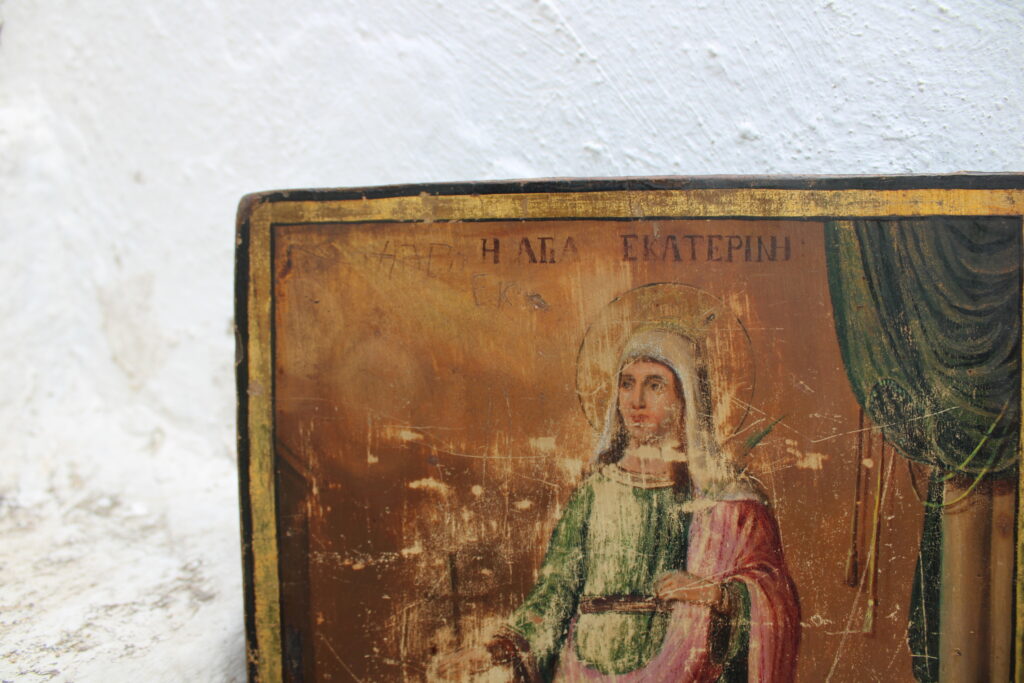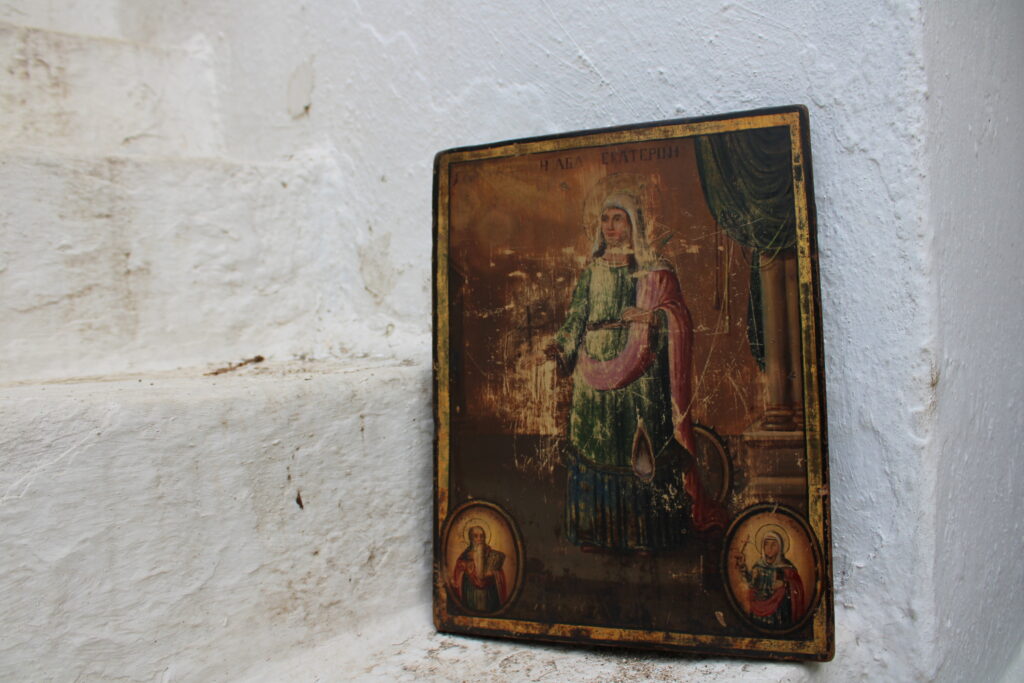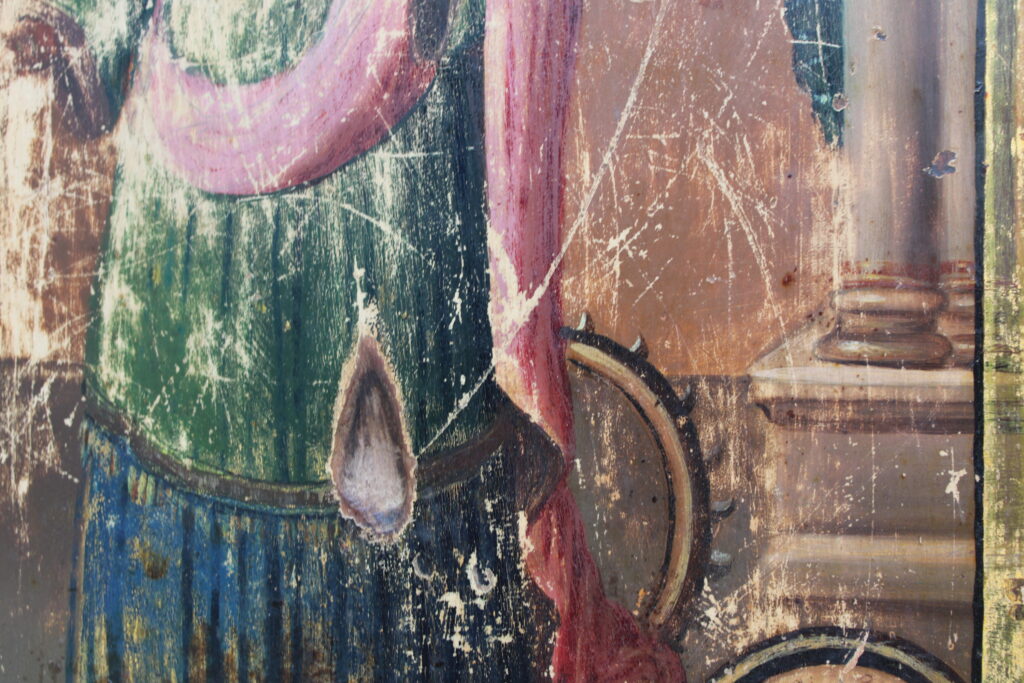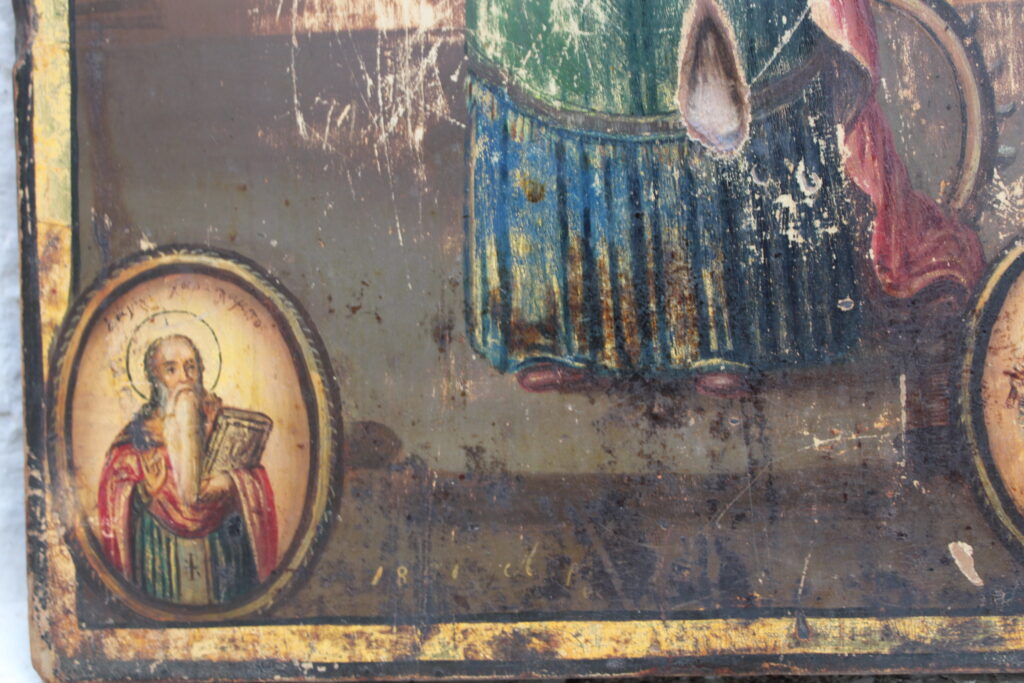Christina Pavlioglou was born in Volos, on Stratigou Makrigianni Street in the refugee settlement located at the end of Iolkos Street. A daughter of two refugees, Damianos Pavlioglou and Efthymia Kostopoulou, Christina lived in her family’s refugee house until she became an adult. Now, three years after her father’s death, she still looks after the empty refugee house, keeping its small courtyard neat and tidy, as if it is waiting for its tenants to sit and talk about their day, discuss their work problems, or share some unexpected joy. Christina’s vibrancy and care keep the house open in a neighbourhood where residents share close relationships, common memories, but also an affinity to newcomers.
The small handmade icon display next to the wedding wreaths of Damianos and Efthymia holds a wooden handmade icon of Agia Ekaterini which came to Greece from Malakopi (Derinkuyu) in Asia Minor and belonged to Christina’s grandmother, Aspasia Kostopoulou. Both Aspasia’s parents had died on the boat on their way over to Greece and during those difficult first months of resettlement, her compatriots were her only support. She got married in Ampelia, in Larisa, to Vasilis Kostopoulos, a widower and father of one daughter, Charikleia. The couple had one daughter together, Efthymia. Vasilis died a few years later and Aspasia moved to Volos with the two girls. They rented a small room in the settlement of Iolkos where Efthymia met Damianos.
Christina Pavlioglou doesn’t know much about the icon, but remembers that her mother thought it could perform miracles and there was a vague family legend about it surviving a house fire. For Christina, her family’s refugee past is not only part of her own history, but also part of the wider history of mobility and the pattern of hardship and violence that displaced people have always had to contend with. In the faces of refugees, Christina sees the faces of her own family and always remembers the Turkish song her paternal grandmother, Kyriakoula Pavlioglou, used to hum which encapsulates the trauma and the pain of the refugee experience.





